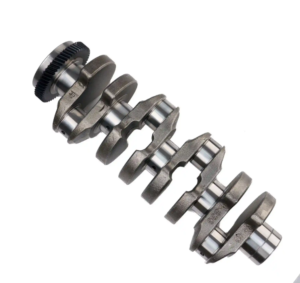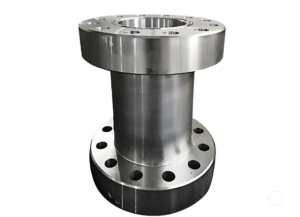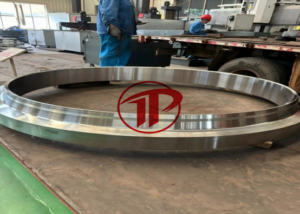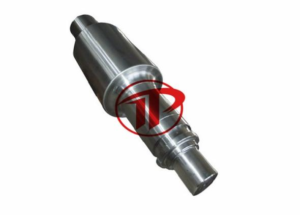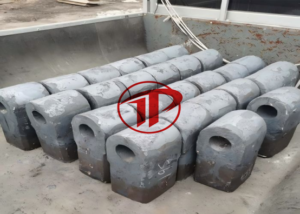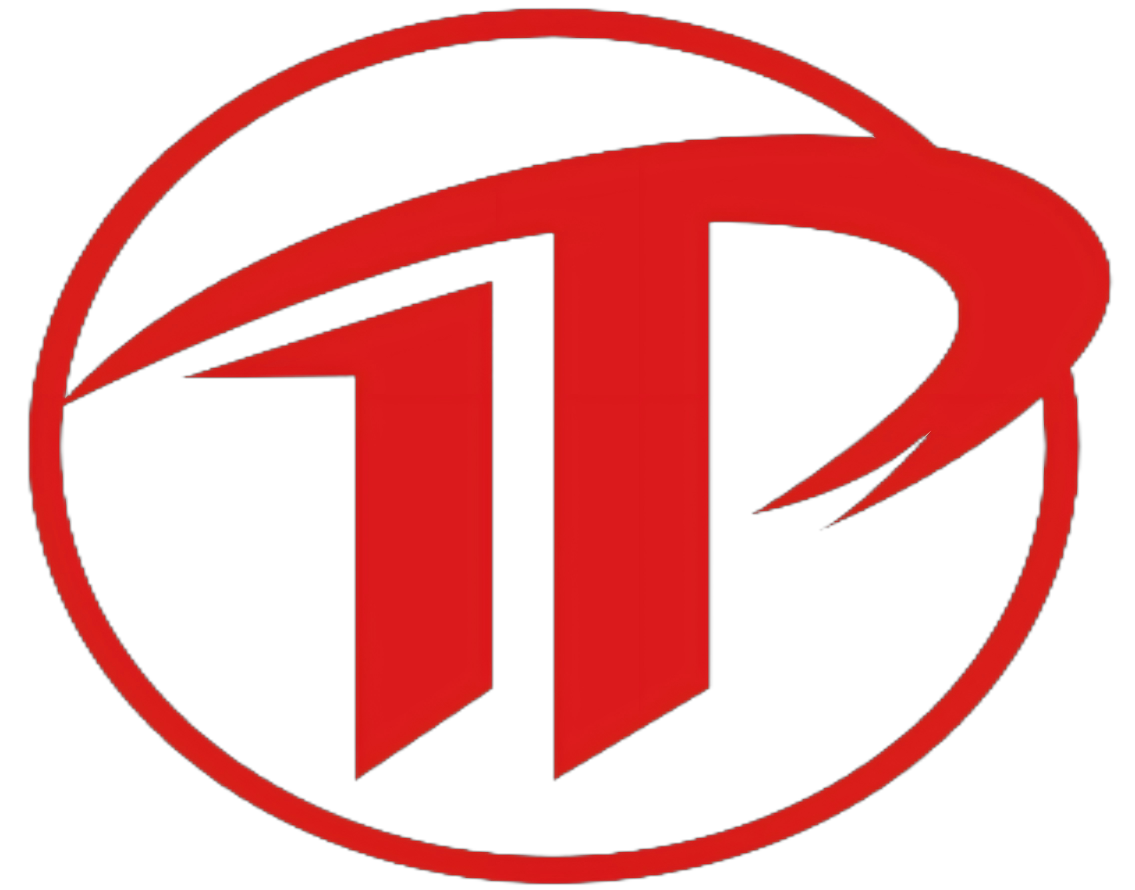AISI 1045
It belongs to the SAE/AISI 10XX series (plain carbon steels) and is commonly employed in heavy-duty mechanical components, automotive systems, and industrial machinery.
Descriptions
1. Chemical Composition
The chemical composition of AISI 1045 (per ASTM A29/A29M and SAE J403 standards) is:
| Element | Composition (%) |
| Carbon (C) | 0.43-0.50 |
| Manganese (Mn) | 0.60-0.90 |
| Phosphorus (P) | ≤0.040 |
| Sulfur (S) | ≤0.050 |
| Iron (Fe) | Balance (~98.5%) |
2. Mechanical Properties
Typical mechanical properties for AISI 1045 forgings (as-forged or heat-treated):
| Condition | As-Forged | Quenched & Tempered |
| Tensile Strength | 585-655 MPa (85-95 ksi) | 700-850 MPa (102-123 ksi) |
| Yield Strength | 450-550 MPa(65-80 ksi) | 550-700 MPa (80-102 ksi) |
| Elongation | 12-18% | 10-15% |
| Hardness | 170-210HB | 25-35 HRC(250-350 HB) |
| Modulus of Elasticity | 200 GPa(29,000 ksi) | 200 GPa (29,000 ksi) |
| Density | 7.87 g/cm³ | 7.87 g/cm³ |
3. Key Advantages
High Strength-to-Cost Ratio: Excellent for heavy-load applications.
Machinability: Good in annealed condition; harder after heat treatment.
Heat Treatability: Responds well to quenching and tempering for tailored properties.
Wear Resistance: Suitable for components subject to abrasion.
4. Limitations
Weldability: Poor due to high carbon content; requires pre/post-heating.
Corrosion Sensitivity: Needs coatings (e.g., galvanizing, painting) for harsh environments.
Brittleness Risk: Overheating during forging or heat treatment can cause cracking.
Recent products
CONTACT US
Address
B-2007,Chuanmei Building,Taishan Street,Taian City,Shandong, China
Call Us
+86 0538 6368027
Email Address
Sales@tiptopforging.com
Forging Process Guidelines
Hot Forging Temperature: 1150–1250°C (2100–2280°F)
Post-Forging Heat Treatment:
Annealing: 650–700°C (1200–1290°F) to improve machinability.
Quenching: Oil/water cooling from 830–850°C (1526–1562°F).
Tempering: 400–600°C (750–1112°F) to balance strength and toughness.
Applications
a. Drilling Equipment
Drill Collars and Tool Joints:
High-strength forgings withstand torsional and axial loads during drilling.
Mud Pump Components:
Pistons, liners, and valves benefit from AISI 1045’s wear resistance.
b. Valves and Fittings
Gate Valve Components:
Stems, wedges, and seats requiring hardness and fatigue resistance.
Flanges and Connectors:
Forged flanges for high-pressure pipelines and wellhead assemblies.
c. Rotating Machinery
Shafts and Gears:
Pump shafts, gearbox components, and drive shafts in compressors.
Crankshafts:
Used in reciprocating pumps and engines for offshore platforms.
d. Downhole Tools
Mandrels and Subs:
Tools for well completion and intervention requiring dimensional stability.
e. Surface Equipment
Hydraulic Cylinder Rods:
High-strength rods for hydraulic systems in blowout preventers (BOPs).
Crankshafts, camshafts, and connecting rods. Gears, axles, and drive shafts. Clutch plates and transmission parts.
Hydraulic cylinders, piston rods, and spindles. Heavy-duty bolts, studs, and couplings.

